 I speak as both a transgender woman and as an Anglican priest, currently serving as an Uniting Church Minister. As a Queer Christian I am not alone. There are many of us in Sydney, and across the world. For we, and queer people of other faiths, have always existed. We can be found in the Bible, throughout history, and we are very much alive today. Yet our lives are so commonly denied. For we are an inconvenient truth: inconvenient both to the Christians who oppose us, and inconvenient also to others, including some in the queer community, who would deny our lives. As such, we are at the heart of the continuing culture wars we seek to end today and we share in the solidarity and hope which this gathering embodies. Indeed, without us the battles we face together simply cannot be won. We so need each other and we badly need others to hear our voices and act upon them... Wonderful to sing my hymn for Sydney WorldPride (based on its theme Gather, Dream, Amplify) this morning at Pitt Street Uniting Church - feel free to use and share! #amplifyqueerfaith #amplifyfaith #sydneyworldpride
With great sadness today but with immense thanks for the friendship, strength and encouragement Peter gave to so many of us - and to a fellow priest who taught me what it was to live, as a priest, so humbly, honestly and hopefully, in the one holy catholic and apostolic community which transcends us all and calls us into the love, justice and joy of heaven. Deo Gratias.
I’m angry again today - and with good reason, especially having just read a particularly heart wrenching cry of anger from an Anglican priest who has expressed so well their own anger at ‘straightsplaining’ so-called allies and the appalling personal cost upon him (I know, I feel and empathise with that pain on every level). As he says, we can usually cope with much of the reactionary stuff but it is what I call (straight and narrow) ‘passive inclusion’, accompanied by the continual injunctions (by those with comfortable privilege) to continuing ‘patience’, ‘calm’, and ‘good (aka cheap) grace’ that really burdens and eats away at souls, lives and ministries.
One of the things Churches really struggle with is anger - not least Anglicans (born of ‘moderating’ control and English upper/middle class ‘restraint’) and (in my experience) often worse still, the Uniting Church (born of the bureaucracy and functionality that contains its own particular restricted range of Christian diversity). Yet too much of even the best of mainstream Church life has stoked, and continues to stoke, anger which needs to be properly acknowledged, heard and engaged with (not least by empowering, not silencing or sidelining, the huge gifts queer people are to every space, not least the spiritual). Sometimes I just wonder what Jesus it is that Churches read - but then personally I’ve never yet called those who hurt me ‘broods of vipers’ and the like, so perhaps I’m also failing on that score?! I don’t expect Australian Anglican avoidance and maintenance of the straight, still largely boys, club to change quickly - nor the UCA’s complacency and irritating self-satisfaction about its often pleasant but limited ‘inclusivity’. They are both changing slowly - and this week’s announcement of a queerphobic breakaway ‘Anglican’ body is partly a sign of that change and an admission of that viperous tendency’s failure to win over others. Queer people of faith (especially local Anglicans this week) will continue to do it tough in many ways, but we won’t be crushed, because we are not only essentially gentle in spirit as well as vitally angry, but we are also extraordinarily fabulous and incredible gifts to our struggling world and to any Church that will not simply ‘include’ us but celebrate with us and learn from us. As the old Judaean said, ‘those who have eyes to see, and ears to hear’… Meanwhile, some of us will keep on singing - and will also sing for those who are denied their voices, and for those who can sing no longer - for why wouldn’t we sing into being such wonderful gentle, angry, gifted, loving lives? 🏳️⚧️🌈 With huge ❤️ and 🙏 for all those doing it really tough right now. You are loved and more precious than you can ever know 😻 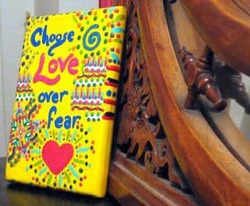 A word re current Lambeth Conference happenings - but it applies to many others too… I’ve always struggled with many faith labels people have tried to stick on me but I’ll still accept ‘ecumenical’ - in the true, big, sense of ‘the whole inhabited earth’, ‘justice, peace and the integrity of creation’, seeking and honouring beauty, truth and goodness wherever it can be found and nurtured, and building on the extraordinary depth of ‘ecumenical grammar’, spiritual nuance and deep relationships developed in the past - and I remain passionately committed to working with anyone who seeks that, whatever label, culture or tradition. That’s been part of the joy of my ecumenical - and interfaith - journeys: discovering others (from Catholics to Pentecostals, Muslims to Wiccans, deep souled Orthodox and big hearted Evangelicals , and those who eschew any ‘faith’ identification). Such people give meaning to the true ‘oneness, holiness, apostolicity, and catholicity’ which others bleat on about but too often only use to bruise and beat up others. Today’s Christian institutional formulations are so typically small, fearful and self-absorbed in that respect - so no wonder we continuing ecumeniacs struggle to be heard. It saddens me that Churches have so little interest in real growth (in humanity and spirituality - not institutional numbers, boundaries and ‘resolutions’) and so neglect the ways forward that ‘receptive’ ecumenists have sought to share - asking not what we can get accepted by others, but what gifts of ‘the other’ (especially the marginal and ostracised ‘other’) we desperately need for our own growth and our mutual survival, never mind flourishing, on this fragile threatened planet. I know that in every great faith tradition - and not least in the Anglican ones I know best (including some fine bishops now at Lambeth) - that others share my feelings and seek to live faith more abundantly. May we keep such faith and join our hearts and hands with those who also share that vision, wherever they be and come from, choosing love not fear. Loving the creative hearts beginning to appear from folks at Pitt Street - here are a few examples (my current favourite being a fellow trans person’s ‘Love’ heart - as I know that comes from a deep journey ) - part of our #returningourhearts Lenten theme, as part of ‘repairing the breach’.
A Prayer of Blessing for LGBTIQ+ Celebrations
by Josephine Inkpin, written for Sydney Mardi Gras 2022 Kaleidoscopic Spirit, You dance among us in a glorious riot of expression, embodying afresh the generous love of Jesus, and all who have embraced love at the heart of being. Bless all who gather at this time to celebrate the gifts of sexual and gender diversity. As you have inexhaustible pride in your rainbow children so may we have such life-bearing strength in ourselves and in one another. Touch our lives and bodies with your transforming Love, shining light where there has been darkness, bringing healing where there has been hurt, and making visible what has hitherto been invisible. Inspire us to deeper intimacy and interconnection, opening up the closets of all that remains damagingly repressed, and leading us along fresh pathways of hope to a more joyous and glittering future for us all. It was a deeply poignant yet beautiful Midnight Mass tonight in St Thomas' Church in Market Rasen. I had indeed had a yearning for one more such communion in the cold and dark and the depths of the symbolism and mystery it reflects - but not for years to come and not like this. The nave altar stood precisely where my parents’ coffins had been just two days before, the mood and singing was subdued by masks and the pandemic, numbers reduced and the liturgy unexuberant. Yet the magic, the miracle, persists - light in the very darkness, glory in the mire and sorrow, enfleshed spirit in our mixed up midst - and eucharistic participation on this, of all occasions, remains so truly special.
It was hard to move away into the night, for the last time to leave the church of my childhood and early formation, to step along the pathway into the marketplace one more time. The main street seemed even more deserted than ever as I made my return - even the wandering drunk had been spirited away. Walking the last part in silent darkness between the two cemeteries for the final time brought back the fullness of so many memories as well as profound emptiness and grief. For in the depths of our factual and metaphorical winters love can be reborn - just as a new dawn broke after the winter solstice on the morning of my parents’ funeral. T.S.Eliot was partly right. ‘A cold coming’ it has indeed been - ‘just the worst time of year for a journey… the very dead of winter’, even without the Omicron wave and renewed distance and desolation - but we do not need to be ‘glad of another death.’ Birth, life and love happens always - divinity in the vulnerability of our flesh: Incarnation in our dark. Lovely to light a candle from among my mother’s treasures today - the word summing up how I’ve always seen the heart of her being and the life she share with my father, for whom love and just dealings were always gifts of his soul: love and laugher together. I wrote a reflection for the funeral at St Thomas' Market Rasen (see here) and was grateful to be given the strength to deliver it.
|
AuthorJo Inkpin is an Anglican priest serving as Minister of Pitt St Uniting Church in Sydney, a trans woman, theologian & justice activist. These are some of my reflections on life, spirit, and the search for peace, justice & sustainable creation. Archives
July 2024
Categories
All
|
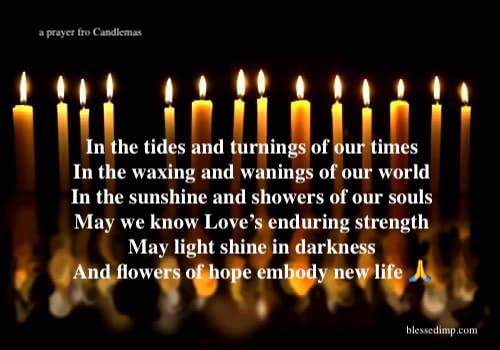
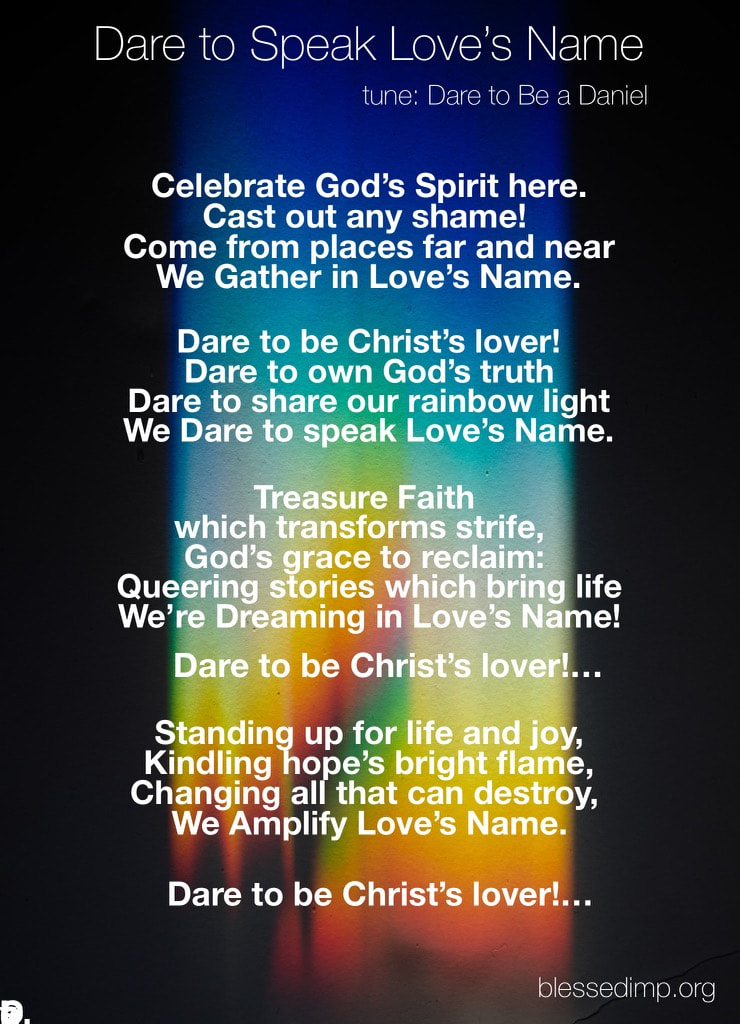
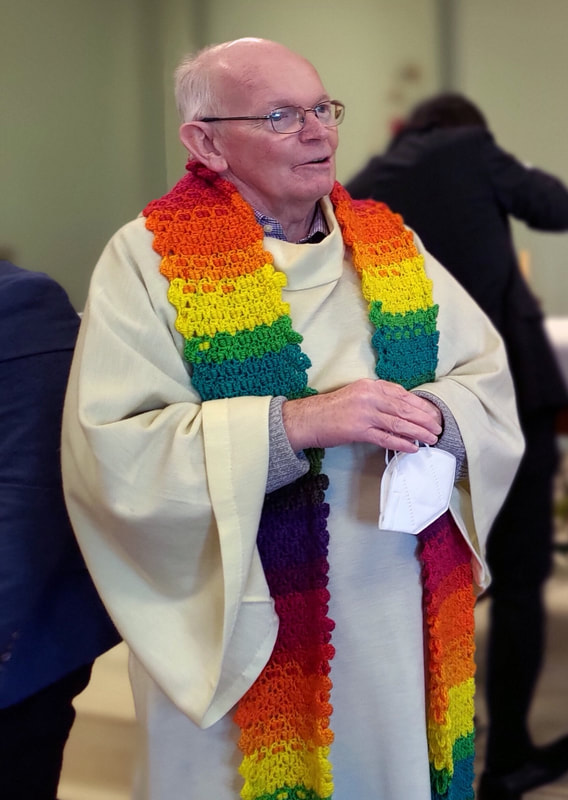
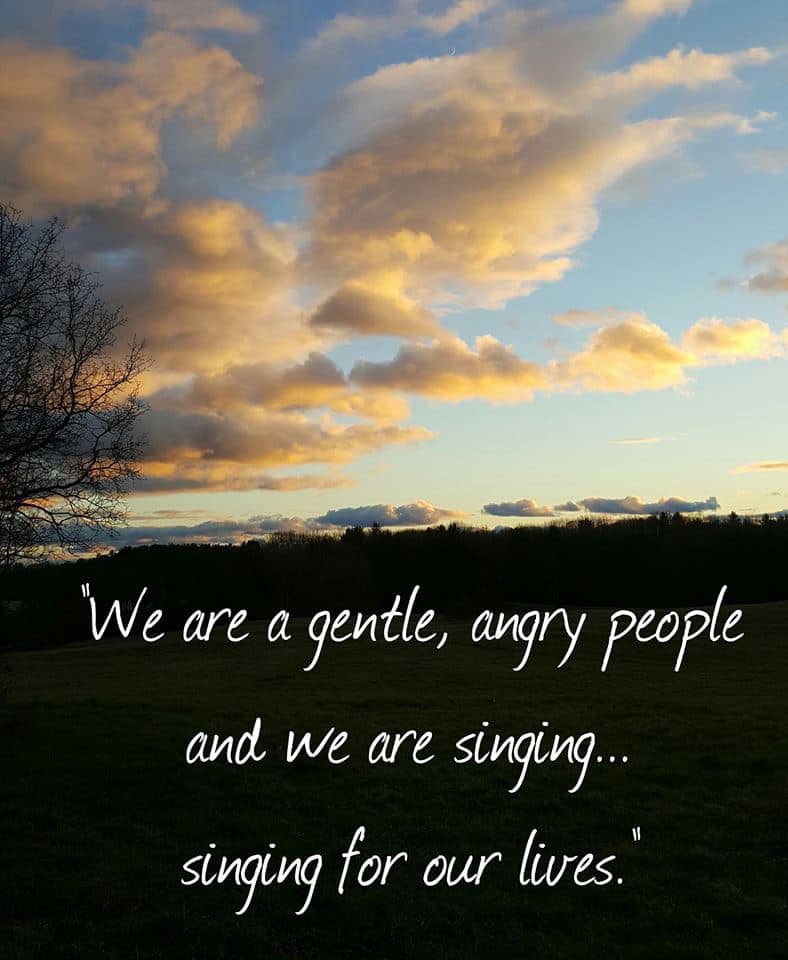

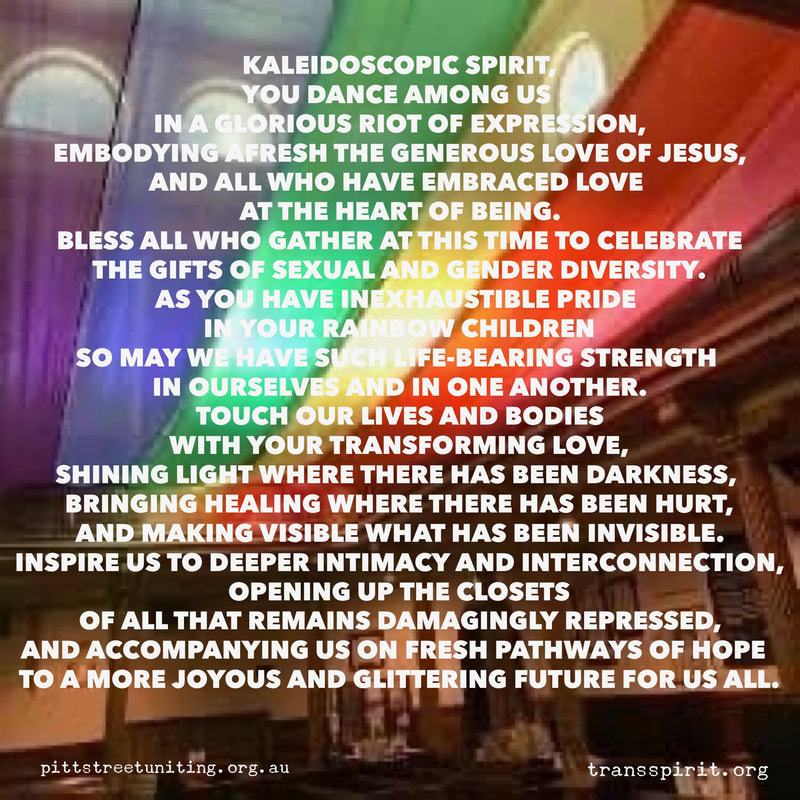
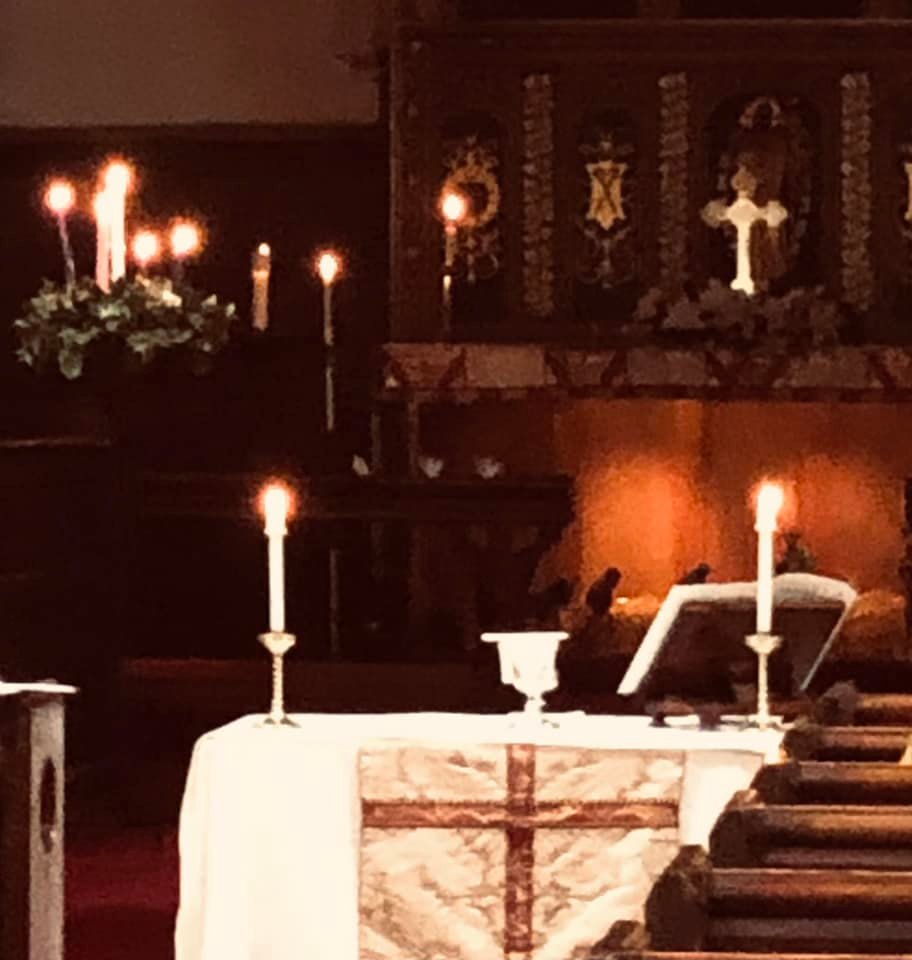
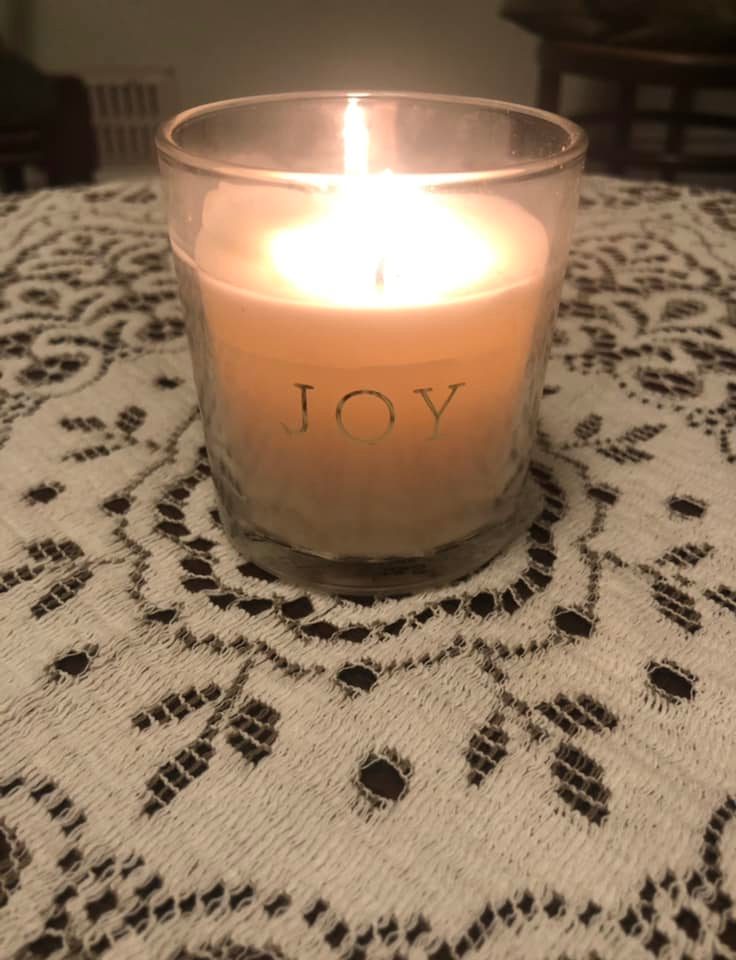
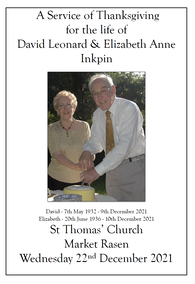
 RSS Feed
RSS Feed